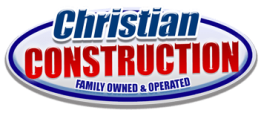Every office building has to take into consideration many factors when determining how to build and remodel a property that will address their long term needs. One consideration is flooring. You have to consider the aesthetics, the functionality, the maintenance, and more, with needs that differ depending on what takes place on the property.
Office complexes have many options, each with their own benefits and weaknesses, offering many options for those looking for new office flooring. Options include, but are not limited to:
Carpet Flooring
Carpet flooring is an inexpensive option and useful for offices where noise reduction is a priority. It absorbs sound effectively, creating a quieter work environment. In addition, carpet provides a comfortable surface for walking and standing, which can be beneficial for employee comfort. The variety of colors, patterns, and textures available allows for significant customization to match the office decor.
However, carpet requires regular vacuuming and professional cleaning to maintain its appearance and hygiene. It is also prone to wear and tear, especially in high-traffic areas, and can stain easily. If you are concerned about having a tight budget in the long term, carpeting may end up costing more as it tends not to last as long.
Vinyl Flooring
Vinyl flooring is highly durable and resistant to wear and tear, making it suitable for high-traffic areas. It is easy to clean and maintain, requiring only regular sweeping and occasional mopping. Vinyl comes in various designs, including options that mimic wood, stone, and tile, offering flexibility in aesthetic choices.
On the downside, vinyl can be harder underfoot compared to carpet, which may be less comfortable for prolonged standing. Despite improvements in appearance, some vinyl options may still look less premium than natural materials. Some vinyl tiles are also thinner and more prone to breaking under heavy weight, which can require costly updates.
Hardwood Flooring
Hardwood flooring offers a timeless and professional look that can enhance the overall appearance of the office. It has a long lifespan and can be refinished to remove scratches and renew its appearance. If you own the property, hardwood adds value to the property and can be a selling point if the building is ever put on the market.
However, hardwood flooring is generally more expensive than other options, both in terms of material and installation. It also requires regular maintenance to protect against scratches, dents, and water damage.
Tile Flooring
Tile flooring is extremely durable and resistant to scratches, stains, and water damage. It is easy to clean and maintain, making it ideal for high-traffic and spill-prone areas. While chemical spills are less common in office buildings, those that do have any manufacturing on site may find tile a desirable option. Tile is available in a wide range of colors, sizes, and styles, allowing for creative design solutions.
On the downside, tile can be hard and cold underfoot, which may be uncomfortable for prolonged standing. Tile also does not absorb sound well, potentially leading to a noisier environment. It may also be more costly, though the long term maintenance needs tend to be better.
Laminate Flooring
Laminate flooring is a cost-effective alternative to hardwood and tile, offering a similar appearance at a lower price point. It is resistant to scratches, stains, and fading, making it suitable for high-traffic areas. Laminate often features a click-and-lock installation system, which can be quicker and less costly to install.
However, laminate can be damaged by excessive moisture, so it may not be the best choice for areas prone to spills. While high-quality laminates can closely resemble real wood or tile, they may not have the same premium feel.
Get Help for Flooring on Your Office Property
Selecting the right flooring for an office building involves balancing aesthetics, durability, comfort, and maintenance requirements. Carpet is excellent for noise reduction and comfort, while vinyl and laminate offer durability and ease of maintenance at a lower cost. Hardwood provides a premium look and long-term value, and tile is unmatched in durability and design versatility.
Consider the specific needs of your office environment and the amount of foot traffic when making your decision to ensure you choose the best flooring for your space. If you’d like help, contact Christian Construction, today.
